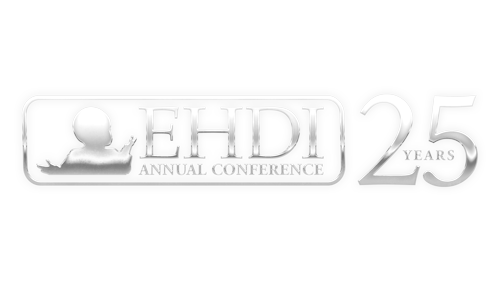2026 Early Hearing Detection & Intervention Conference
March 15-17, 2026 • Jacksonville, FL
3/10/2025 | 10:05 AM - 10:35 AM | Harnessing Active Learning for Infants who are Deafblind, Deaf, or Hard of Hearing with Complex Access Needs | 319
Harnessing Active Learning for Infants who are Deafblind, Deaf, or Hard of Hearing with Complex Access Needs
Language development is inextricably tied to concept development. In the first three years of life, infants and toddlers learn many concepts through movement, environmental exploration, object manipulation, experimentation, and feeling safe and connected to family and caregivers. Infants and toddlers who are deafblind or deaf or hard of hearing with complex needs often require targeted interventions to access their environment and explore and manipulate toys and everyday objects. Active Learning, developed by Dr. Lilli Nielsen, is a research-based approach to provide access by enhancing the way young children naturally learn. One aspect of Active Learning is creating responsive environments that allow the best possible opportunities for self-directed, independent, and safe access for children to learn about their world and themselves in the world. Targeting concepts and skills within the child’s current ability level increases self-confidence and more willingness to try new things. Child-led, serve-and-return interactions develop trust and might become routines involving rich, meaningful reciprocal communication and language exposure in the child’s mode. The principles of Active Learning provide a structure and strategies that foster concept development, motor skills, interaction, and more. Though also used with older children whose behavior indicates a functional level between birth and 48 months, it is especially appropriate for infants and toddlers who may need direct intervention to access the environment due to missing sensory information, difficulty moving independently, or other reasons. Learning that builds foundational concepts and skills necessary for development well beyond childhood is ideal for a child who needs unique solutions to access learning and development. This presentation is a brief introduction and invitation to learn more about this well-established, pedagogically sound approach to development and learning.
- 1. Participants will describe the child who may benefit from the Active Learning approach.
- 2. Participants will explain how accessible environments encourage concept and language development.
- 3. Participants will list three ideas for facilitating independent exploration in infants with complex access needs.
Presentation:
This presentation has not yet been uploaded.
Handouts:
3545975_18141HillaryKeys.pdf
3545975_18141HillaryKeys_1.docx
Transcripts:
CART transcripts are NOT YET available, but will be posted shortly after the conference
Presenters/Authors
Hillary Keys
(Primary Presenter), Texas Deafblind Project, keysh@tsbvi.edu;
Hillary Keys is the Early Childhood Deafblind Education Consultant for the Texas Deafblind Project. She has over 30 years of experience in education and worked as a classroom teacher, an itinerant TVI/TDB, and Deafblind Specialist at a regional and statewide level. While she has diverse educational interests, Active Learning approach, use of routines and calendar systems, and early childhood development and learning are areas of strength. She believes all children can learn and is passionate about finding the best ways for children to interact and experience joy especially those with complex needs.
ASHA DISCLOSURE:
Financial -
No relevant financial relationship exists.
Nonfinancial -
No relevant nonfinancial relationship exists.
AAA DISCLOSURE:
Financial -
No relevant financial relationship exists.
Nonfinancial -
No relevant nonfinancial relationship exists.
